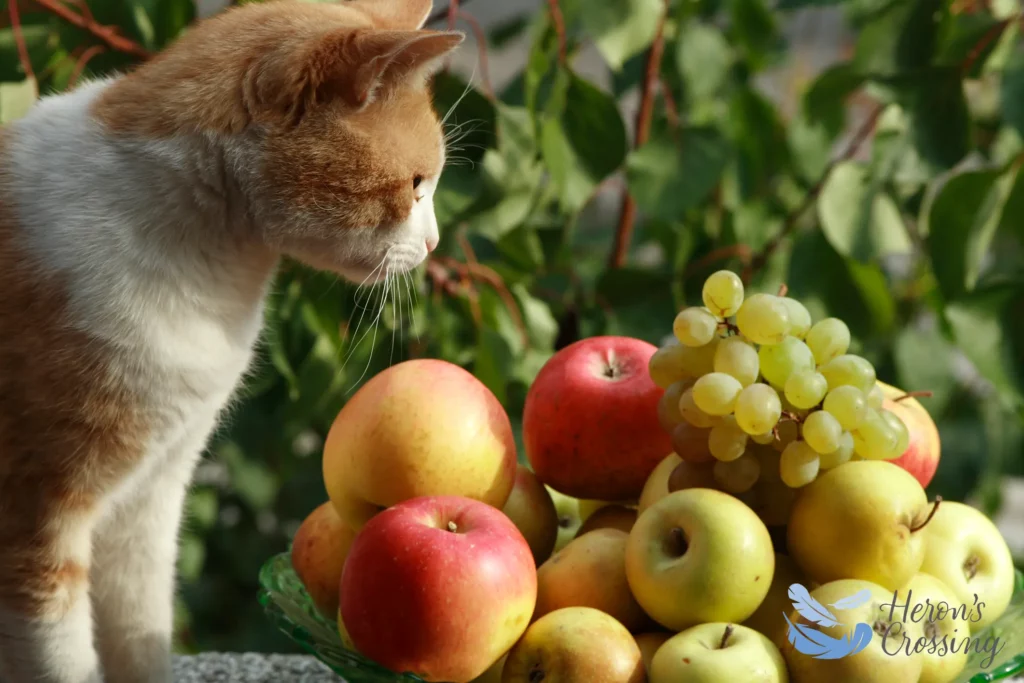If you give your cat a blueberry, will he eat it?
Cats are obligate carnivores. They need a diet that’s rich in meat or fish to keep them healthy, so they’re usually not interested in the trimmings. They’ve got plenty of extra taste receptors for appreciating proteins, but lack any taste buds for sweetness. Yet, they can still enjoy fruit for its texture and juiciness – a delightful treat on a hot day.
Fruits are a great source of vitamins and antioxidants, but they also pack a lot of sugar that can upset a cat’s metabolism, so giving small amounts a couple of times a week should be enough to give your cat a little boost.
The best way to introduce fruit to your cat is to include a tiny bit mixed into his regular meal. Cut the fruit into tiny pieces that won’t get caught in his throat. Cats don’t spend much time chewing, but prefer to swallow their food and run, as they would in the wild.
The ASPCA recommends these fruits to include in your kitty’s diet:
- Cranberries, Blueberries, Strawberries
- Kiwi, Pineapple
- Bananas
- Cantaloupe, Pumpkin, Honeydew
Only the pulp of the fruit is safe for all of the above – no skins, peels, cores, seeds, stems or leaves, just pure fruit.
Be aware that oranges and other citrus, cherries, grapes, raisins and currants, even in small amounts, can be deadly, so these should be kept out of reach of cats (and dogs, too) at all times. Sharing some of your baked turkey with cranberries or your peanut butter and banana is OK, but sharing your orange chicken or raisin bran is not.
Talk to your vet if you are unsure about giving anything new to your cat.
Banana and watermelon are common favorites, but it will be interesting to learn what your cat enjoys.
Heron’s Crossing provides end-of-life care for pets in the Metro Atlanta area. In-home appointments with compassionate vets are available. If you’d prefer a home-like setting away from your home, our Decatur office is also available by appointment.

